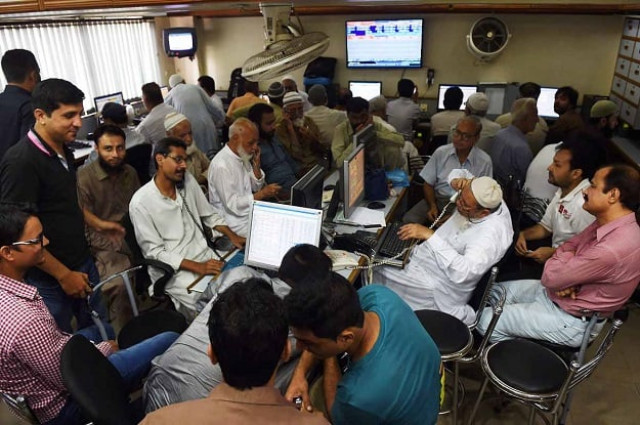Black Monday
Market fundamentals in Pakistan have not changed and this upheaval should only be temporary

PHOTO: AFP
While some feel the increase of the KSE-100 Index had to be corrected — vindicated by the bullish sentiment witnessed on August 25 — the fact is that local investors are quick to follow the foreigners’ bandwagon. Foreign investors hold 30 per cent of the KSE’s free-float and control roughly 10 per cent of total market capitalisation. This compels Pakistani investors to follow suit when foreign investors sell, without realising that the latter have a different investment landscape altogether. In an attempt to trim losses in emerging markets amid economic slowdown, foreigners have to rely on realising gains from markets that have gone up. Hence, they sell. Local investors following suit means the market is pulled down a lot more than is needed and that is when smart investors look to increase their holdings again. Market fundamentals in Pakistan have not changed and this upheaval should only be temporary. While one cannot accurately predict the future of any stock market, it is safe to say that panicky investors were to blame for Black Monday. And after the crash of 2008, who can blame them.
Published in The Express Tribune, August 26th, 2015.
Like Opinion & Editorial on Facebook, follow @ETOpEd on Twitter to receive all updates on all our daily pieces.














COMMENTS
Comments are moderated and generally will be posted if they are on-topic and not abusive.
For more information, please see our Comments FAQ